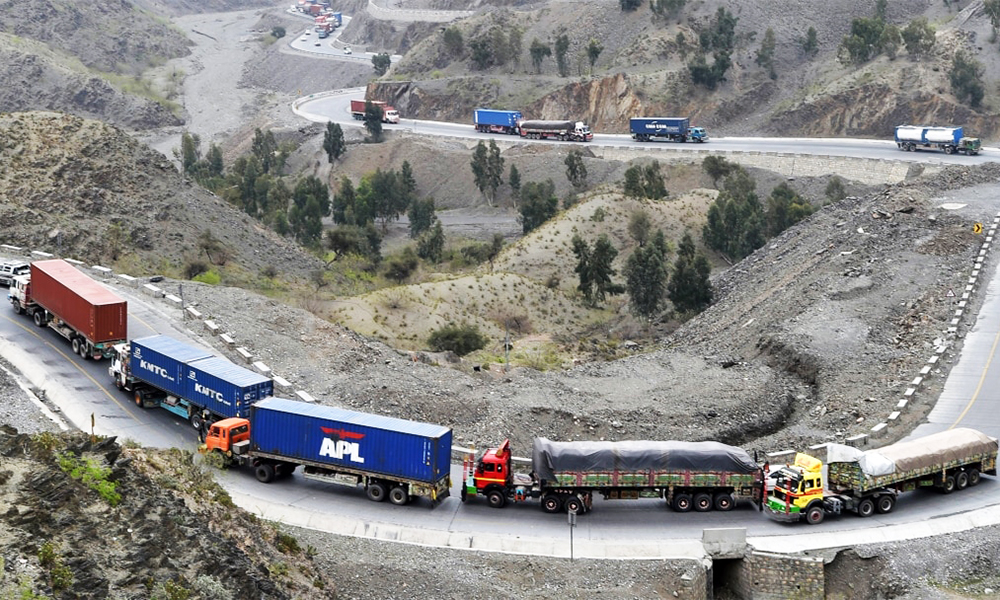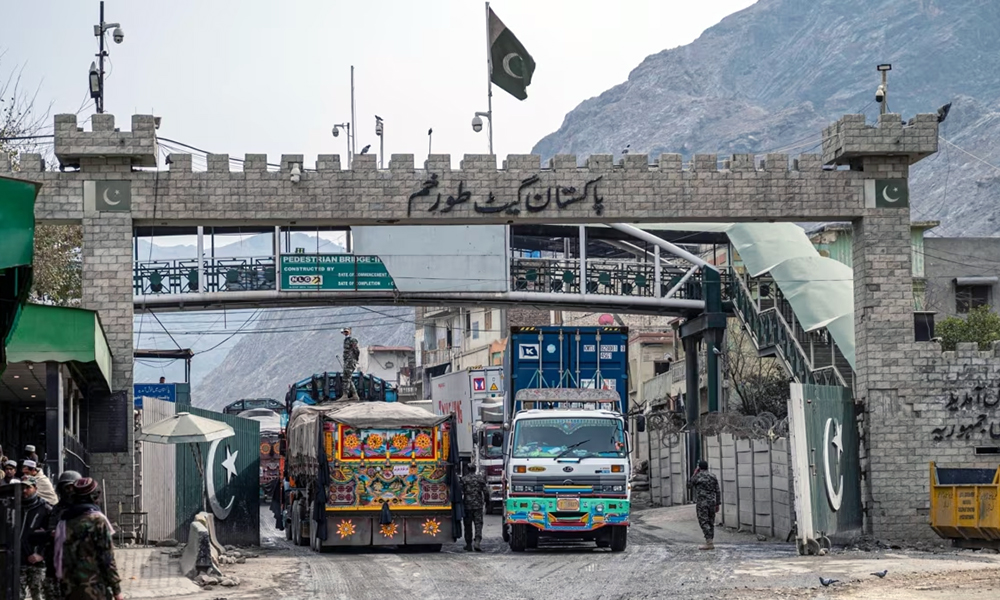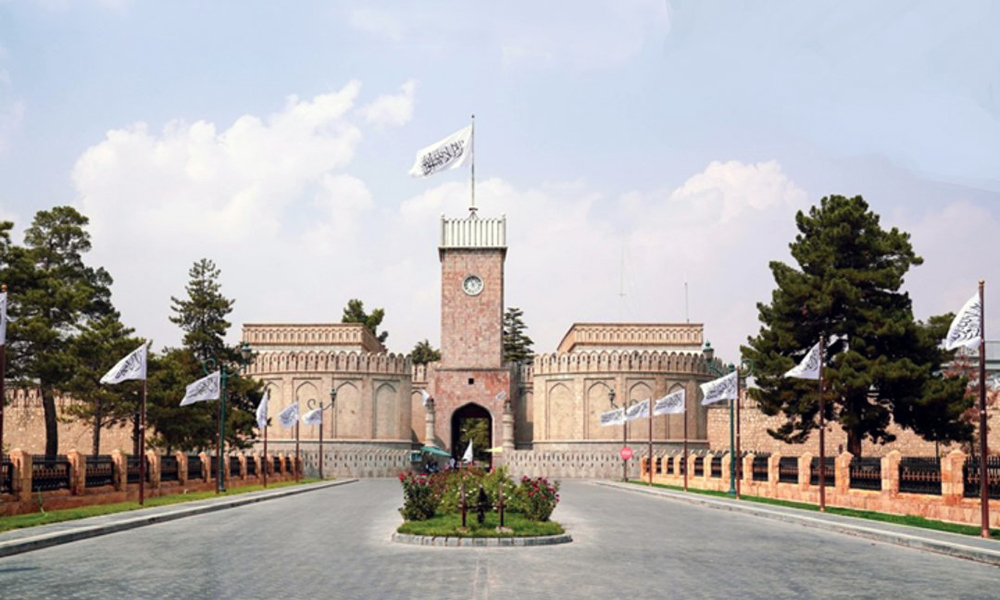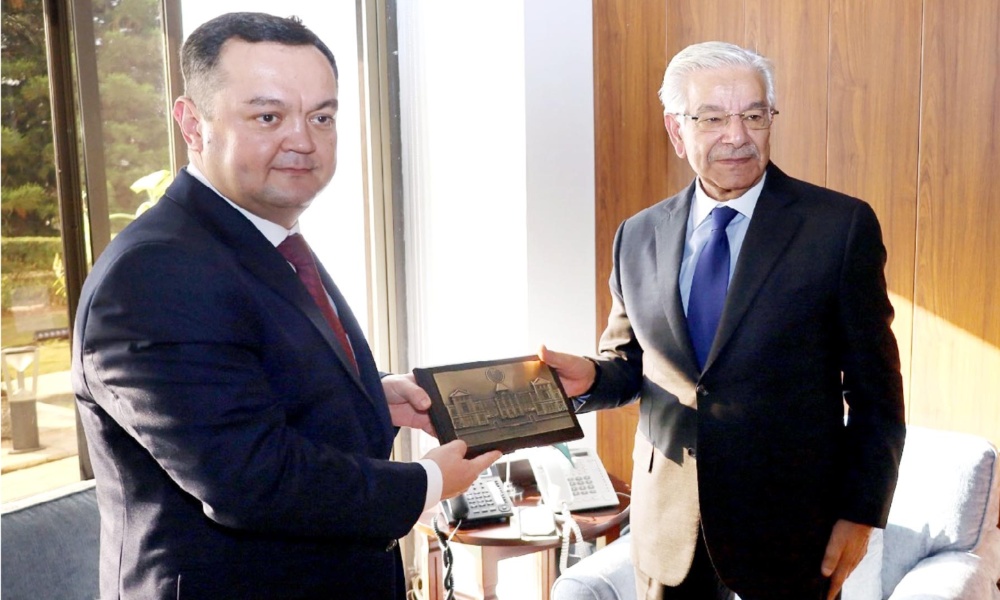Business
Indian trucks carry cargo to Uzbekistan for first time via Afghanistan and Pakistan

Hopes of turning Afghanistan into a key trade link between Central and South Asia are high after an Indian trader exported commercial goods to landlocked Uzbekistan through Pakistan and Afghanistan this week.
VOA reported that trucks carrying 140 tons of cargo, mostly Indian sugar, departed Kabul on Wednesday for the Uzbek capital, Tashkent.
An Islamic Emirate of Afghanistan (IEA) spokesman Mawlana Zaheer told VOA the shipment arrived in the Afghan capital from Pakistan via the Torkham border crossing.
The Afghan ministry of commerce organized a special ceremony to facilitate the transit of the Indian goods, hailing it as a major step toward turning Afghanistan into a key trade link between Central and South Asia.
The commercial cargo originated from Mumbai, India, and traveled through the Karachi seaport in Pakistan earlier this month before being trucked to its Uzbek importer under a recently inked bilateral transit trade agreement between Pakistan and Uzbekistan, a Pakistani official told VOA.
Uzbek President Shavkat Mirziyoyev signed the agreement along with several other documents during his two-day official visit to the Pakistani capital, Islamabad, in early March.
The Pakistani official emphasized that the Uzbekistan-bound Indian commercial consignment was a privately arranged activity under the agreement and had no government involvement from any of the four countries.
"It will now become a regular activity, and Uzbekistan will be able to import goods from anywhere through Pakistani seaports," said the official, who spoke on condition of anonymity because he was not authorized to talk to the media.
IEA authorities are bound to facilitate the trade activity because Uzbekistan, like landlocked Afghanistan, also has rights to access Pakistani ports to conduct international trade, the official added.
Islamabad allows Kabul to use its ports and land and air routes to conduct trade with other countries under a long-running bilateral arrangement known as the Afghanistan-Pakistan Transit Trade Agreement (APTTA).
Business
Daily truck clearances at Torkham drop from 400-500 to 5-10

Pakistan’s Sarhad Chamber of Commerce and Industry (SCCI) has said that daily truck clearances at Torkham crossing have declined from 400-500 to 5-10.
SCCI President Fazal Muqeem Khan said this at the signing ceremony of a memorandum of understanding (MoU) with the Pakistan-Afghanistan Joint Chamber of Commerce and Industry to promote bilateral trade and cooperation.
He said the volume of trade between Pakistan and Afghanistan had fallen from $3 billion to $1 billion annually.
Fazal Muqeem also highlighted the adverse impact of the 2% Infrastructure Development Cess (IDC) imposed by the Khyber-Pakhtunkhwa government on trade and transit.
Business
Turkish scholars, charity officials assess investment prospects in Afghanistan
Officials pledged to encourage Turkish investors to explore and capitalize on investment opportunities in Afghanistan

Afghanistan’s Acting Minister of Energy and Water, Mullah Abdul Latif Mansoor, met with a delegation of Turkish scholars and officials from the Adif Charity Foundation on Tuesday to discuss various political, religious, and social issues.
According to the Ministry of Energy and Water, Mullah Mansoor praised Adif’s humanitarian efforts in Afghanistan and highlighted the country’s ample resources for energy production.
He emphasized that Afghanistan currently offers a favorable environment for investment in all sectors, assuring the Turkish delegation of the Islamic Emirate’s commitment to ensuring the safety and security of investors and their assets.
In response, Adif officials pledged to encourage Turkish investors to explore and capitalize on investment opportunities in Afghanistan, signaling a potential boost in economic and developmental cooperation between the two nations.
Business
Uzbek envoy to Pakistan discusses Trans-Afghan Railway project with Pakistani minister
The Trans-Afghan Railway project is expected to serve as a powerful stimulus for trade and economic integration among numerous countries in the region

Regional connectivity projects including the Termez-Kabul railway line, the Trans-Afghan Railway, and the multimodal Belarus-Russia-Kazakhstan-Uzbekistan-Afghanistan-Pakistan transport corridor, are key to the region’s success, the Ambassador of Uzbekistan to Pakistan Alisher Tukhtayev said during a meeting with Pakistan’s Defense Minister Khawaja Asif on Friday.
The two officials discussed a range of issues as well as coordinating efforts to ensure stability and deepen economic integration in the region.
Asif however pointed out that Tashkent has become an important hub for regional cooperation, Pakistani media reported Monday.
Special focus was given to the implementation of the Trans-Afghan Railway project, which is expected to serve as a powerful stimulus for trade-economic integration to numerous countries.
The ambassador said the governments of Uzbekistan, Pakistan, and Afghanistan are actively cooperating in the implementation of joint economic and infrastructure projects and one of them is the construction of the Trans-Afghan Railway.
He said the “Termez-Kabul-Peshawar” railway project plays an important role in restoring ties of regional connectivity between Central and South Asia.
He added that once the project is launched, the volume of trade will increase significantly and shipping costs will decrease.
Tukhtayev said the railway connectivity will contribute hugely to regional stability and overall prosperity by aiding Afghanistan’s economic recovery.
He also said the project will facilitate the delivery of Uzbek goods to world markets through Pakistani ports and will open up a new route for Pakistan to export its products to Central Asian, and European markets.
According to him, the Trans-Afghan railway will be able to carry up to 20 million tons of cargo per year, and transportation costs will decrease by 30-35% and timing of deliveries will be cut from two weeks to three to four days.
He also stated that the international cooperation project on the development of the multimodal transport corridor Belarus-Russia-Kazakhstan-Uzbekistan-Afghanistan–Pakistan is being actively promoted.
[embed]https://youtu.be/2Osh4f_dA5Y[/embed]
-

 Sport5 days ago
Sport5 days agoLanka T10: All three matches abandoned due to rain
-

 Latest News5 days ago
Latest News5 days agoIndia hoping to import coal and marble from Afghanistan
-

 Sport4 days ago
Sport4 days agoZimbabwe’s opening ODI against Afghanistan abandoned
-

 Latest News5 days ago
Latest News5 days agoJapan announces $27.5 million aid package to Afghanistan
-

 World3 days ago
World3 days agoNorth Korean troops suffer 100 deaths, struggling in drone warfare, South Korea says
-

 Latest News3 days ago
Latest News3 days agoTwo horror accidents on Kabul-Kandahar highway leave 52 dead
-

 Latest News1 day ago
Latest News1 day agoAfghan men must stand with women to support viable future of country: US envoy
-

 International Sports4 days ago
International Sports4 days agoLanka T10: Kandy Bolts in at 4th spot in playoffs after thrilling day

























